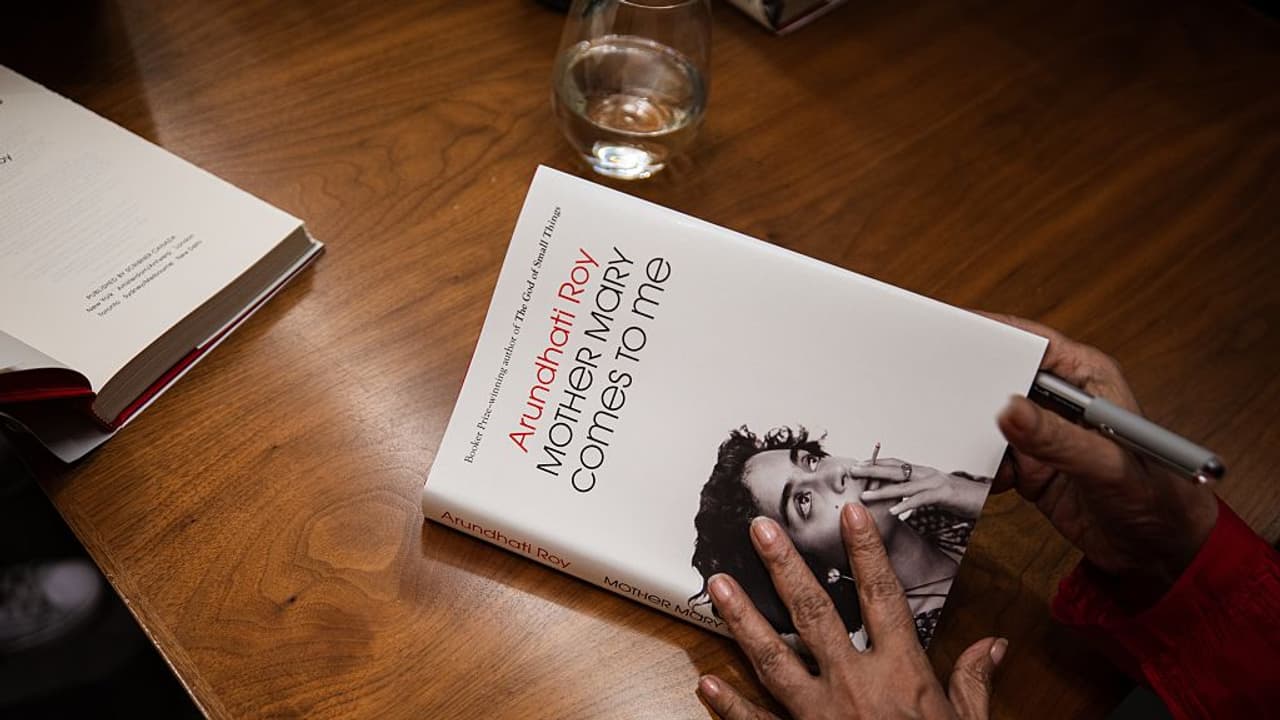Mother Mary Comes To Me candidly explores their strained yet nurturing bond, depicting Mary as both an inspiration and an emotional challenge. Roy intertwines personal history with broader social commentary, reflecting on identity and resilience,.
Bengaluru: Arundhati Roy’s Mother Mary Comes to Me is what seldom writers are able to achieve. It is a memoir that is both deeply personal and widely resonant. Roy reveals a deeply intimate perception of her relationship with the people in her life, especially with her mother Mary Roy. Released in September 2025, the book sheds light on their strained bond that was both nurturing and turbulent, set against the backdrop of a socially and politically complex India. Mary Roy emerges in these pages as a formidable presence: an educator, activist, and trailblazer who fought patriarchal norms in Kerala’s Syrian Christian community. Her landmark legal battle to secure equal inheritance rights for daughters in her family remains a highlight of her indomitable spirit. For Arundhati Roy, her mother was simultaneously “shelter and storm,” a figure whose strength shaped the contours of her daughter’s identity.
Not a Saviour
Yet, the memoir does not portray her as a saviour or sees her motherhood as a kind of trophy. In fact, it exposes the restrictions imposed due to motherhood and still being deeply humane. The memoir traces Roy’s early life, marked by poverty, instability, and her mother’s unyielding independence. It captures the duality of admiration and conflict, painting Mary as both a source of inspiration and an emotional challenge. Roy’s prose is lyrical and candid, reflecting not just personal memories but the ways in which family, politics, and society are intertwined. Beyond the personal narrative, Roy situates her story within a broader social and political landscape. The memoir reflects on Indian society, globalization, and Roy’s own evolution as a writer and public intellectual. These sections, while sometimes diverging from the intimate focus on her mother, add depth to the narrative by highlighting the broader forces that shaped both women’s lives.
She blends the personal and the political with utmost ease. Some very complex relationship dynamics are told in a simple, heartfelt way. The way in which her exploration with romance, identity, and familial obligations unfolds is both candid and reflective, highlighting how personal choices are inevitably intertwined with societal barriers. Ultimately, Mother Mary Comes to Me is more than a family memoir; it is a meditation on resilience, identity, and the legacies we inherit from those who came before us. Through her candid and nuanced storytelling, Roy offers readers a window into the forces—both nurturing and challenging—that have shaped her life and work. For anyone interested in family dynamics, personal growth, and the intersection of the personal with the political, this memoir is a compelling, thought-provoking read.
Verdict
If you are someone looking to understand the persona that is Arundhati Roy—her convictions, her creativity, and the formative experiences that shaped her worldview—Mother Mary Comes to Me is an essential read. The memoir offers a rare glimpse into the intimate contours of her life. In a literary landscape crowded with memoirs, this work stands out for its emotional honesty, lyrical prose, and the courage to confront both familial and societal truths. It is a testament to the enduring complexity of human relationships and the power of storytelling to illuminate the lives behind the public persona.
